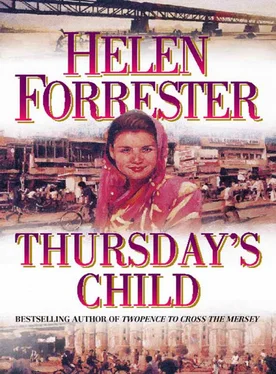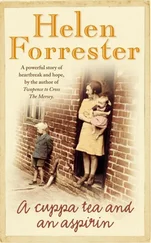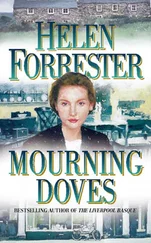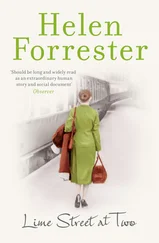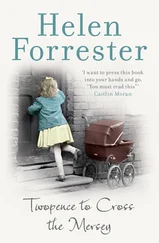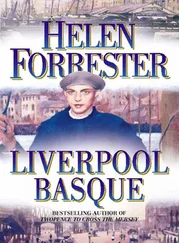There was a pause and then Angela’s dragging footsteps up the stairs. Enwrapped in my own misery as I was, even I thought how tired she must be to come so slowly.
Angela came into the room. She had taken off her hat and coat, but still wore the slacks and the overall she used in her work as a ‘back-room girl’. She had studied electronics, but none of the family really knew exactly what she did in the closely guarded Government laboratory where much of her life was spent.
She shut the door behind her and leaned against it. Her face was an unearthly white and, despite the heat of the sickroom, she was shivering.
‘Pegs.’ Her voice was only a whisper.
She looked so stricken that I motioned her to come to me. I had not imagined that my elegant, sophisticated sister had so much feeling in her, and I was jolted out of my self-pity.
She came and sat down on the bed, her shoulders hunched and her hands dangling hopelessly between her trousered knees. This ugly posture was enough to tell me how deeply she had been affected by the news of Barney’s death; usually she sat very gracefully, with straight back and ordered hands.
Suddenly she flung herself across me and wept, her breath coming in harsh gasps. I said nothing, feeling too full of grief myself to speak.
‘Dinner’s ready, Angela,’ called Mother.
‘Give me a handkerchief,’ said Angela, looking up quickly, her sobs hastily stifled.
I gave her a very wet handkerchief and she wiped her eyes and blew her nose. She tried to smile at me, as she said: ‘Woman must eat as well as weep.’
She went across to the dressing-table and powdered her nose with my puff, then came back to the bed, and in almost motherly fashion, straightened my top sheet and kissed me on the forehead. I could feel her lips trembling as they touched my skin, although she looked fairly composed as she walked to the door.
As she went out, she said: ‘I’ll come up after dinner and keep you company while you eat your supper.’
‘I can’t eat,’ I said.
‘My dear, you must. In times like this, one must keep strong – and you have a long way to go yet.’
‘I wish I was dead,’ I said.
After Angela had gone downstairs, I lay for a long time, thinking of Barney. I had always had a great affection for him, hot-tempered and ruthless as he often was; when we were younger, I had imagined that he preferred Angela to me as he had taken her out frequently, but it was to me that he proposed during the last Christmas he had spent at home. I had been so happy; it seemed as if the war could not possibly last much longer, and we planned to be married as soon as Barney was demobbed. He had survived the invasion of France safely and had enjoyed one more leave when his badly mauled regiment was brought home to be reformed. He had been tired and morose during that last leave, as if he had a premonition of what was to come, but after he was rested he became more cheerful and we spent two or three happy days together before he went back to his barracks.
I had begun to collect linen and china for the small flat we hoped to find. I wanted Barney to enjoy all the comforts I could scrounge for him in a tightly rationed country. I had bought sheets on the blackmarket, made pillowcases out of bleached flour bags, begged old curtains from Mother, and had bought from auction sales pieces of painted china and prewar silverware. Even now, on the bedside table, lay a half-finished tablecloth, which I was contriving by faggoting together tiny pieces of linen left over from the manufacture of aeroplane wings.
In a paroxysm of rage, I sat up and flung the tablecloth and the coloured embroidery silks across the room. Unfortunately, I flung the water glass as well; but the explosion it made when it crashed released the tension in me, and when Mother came running into the room, I was crying with steady, hopeless sobs.
Mother picked up the cloth and folded it carefully. It was to be a long time before I would spread it on a table, and if some, self-appointed prophet had told me where the table would be, he would not have been believed.
When I was seven, my father, Thomas Delaney, came to Wetherport to work in the Income Tax Offices. In order to be near his work, he bought a Victorian house not far from the middle of the city. It had a walled back garden, in which my father managed to grow the daffodils for which he was famous locally. In spite of the heavy fall of soot and the fact that the surrounding houses had long since deteriorated into apartments or boarding houses, the family was very fond of its home and we refused to be dislodged from it, even during the heaviest bombing; and when we surveyed it on Victory Day, five weeks after Barney’s death, we were happy to find that it was in as good condition as when we first entered it.
From this house, I had gone out to school and later to the University; and now when my long day’s work was done, it was the place to which I thankfully returned each night.
About half a mile from home there was a very old part of the city, which bordered upon the docks, and it was in this area that, after taking a degree, I took up social work amongst unwanted and neglected children. A scar on my lung kept me out of the Forces during the war, and I was left undisturbed by the Ministry of Labour and National Service to continue my work. Most of the prostitutes of Wetherport lived in my district, and the place swarmed with troops and sailors of every nationality. Many of the residents were coloured – part West African Negro, part Arab and part Chinese, with a few Indians scattered amongst them. Their poverty was great and was intensified by the bombing which they bravely endured. They knew me as ‘the lady from the Welfare’ and I was classed with ‘the man from the parish’, that is, the Relieving Officer, as someone to whom the front door could be opened without hesitation. The war brought work to those who were dock labourers and seamen, and the young men were called into the Army, so that their fighting cocks tended to languish in their backyards, but games of fan-tan and crown and anchor flourished, and betting and drinking carried away much that was earned; the poverty and filth of their homes remained.
As the war progressed, illegitimate children seemed to be born faster than I could cope with them and my work was always far behind. I therefore returned to the office a week after James’s visit, still feeling shaky from the effects of the influenza.
The elderly voluntary workers, who were my staff, were horribly kind. They had seen Barney’s name in the ‘Killed in Action’ column of the Wetherport Telegram , and they handled me as if I was a delicate ornament, liable to breakage. They tiptoed in and out of my room, brought me specially made cups of tea, and murmured that I was looking better or looking worse. I felt like screaming at them to stop, to be normal, to make some vulgar joke, so that the automaton that was me could try and laugh.
One day James rang me up and asked me to join his walking club – it was surprising how far his lame leg could carry him over rough country. By the end of the summer, I had become, at his instigation, an unprotesting member of a music club and an opera society. He kept me in circulation firmly; every time I showed signs of slinking back to the family fireplace to weep he hauled me out again.
Very few of our friends came home from the war, and, in the topsy-turvy world in which we found ourselves, Angela also seemed glad of James’s company, and she frequently came with us on our outings. She was witty and she often made James laugh; he had the same throaty chuckle as Barney – and it hurt me to hear him. I love to hear merriment, but a dead man’s laugh is saddening, especially when you still love him.
Читать дальше
